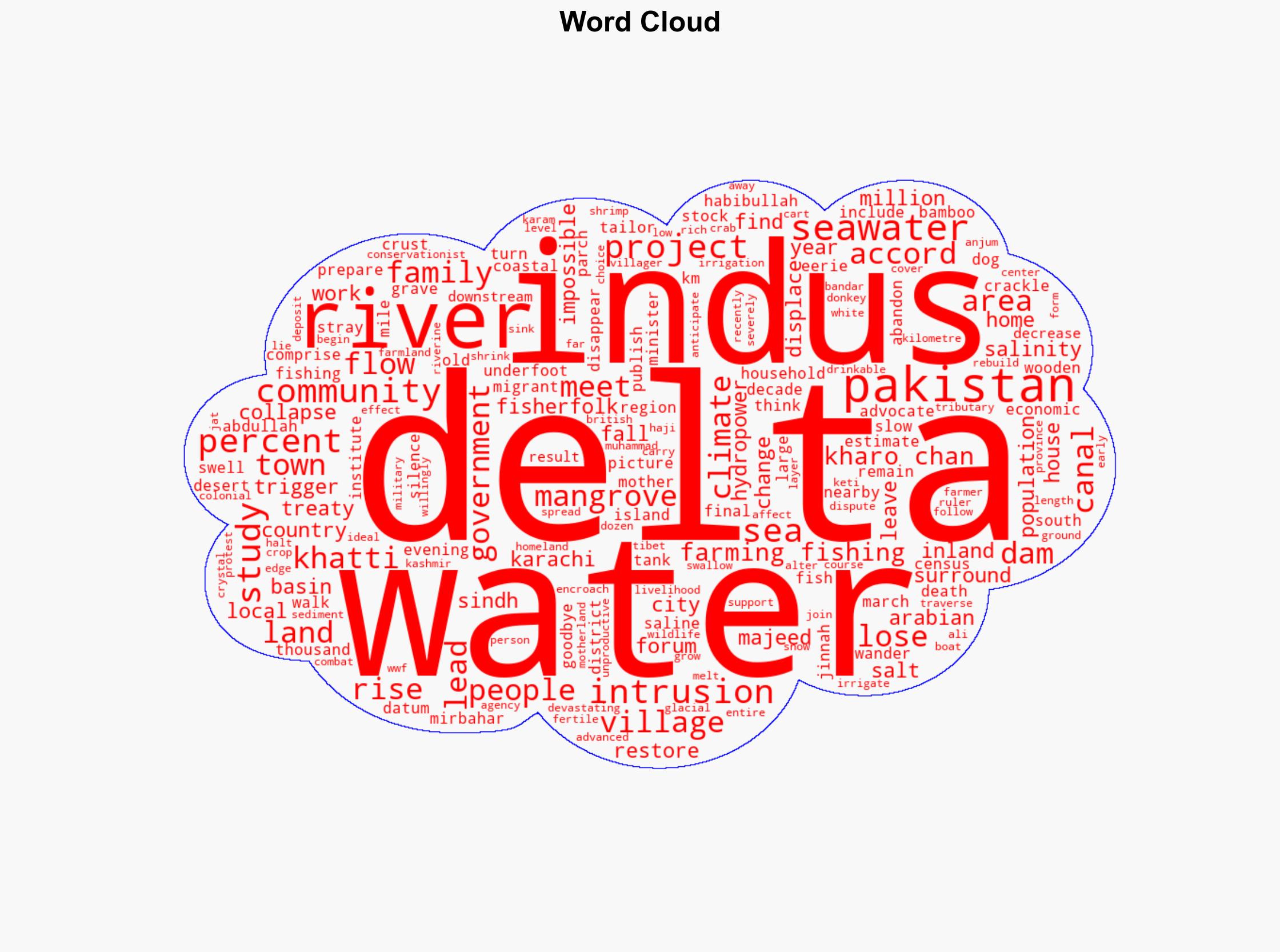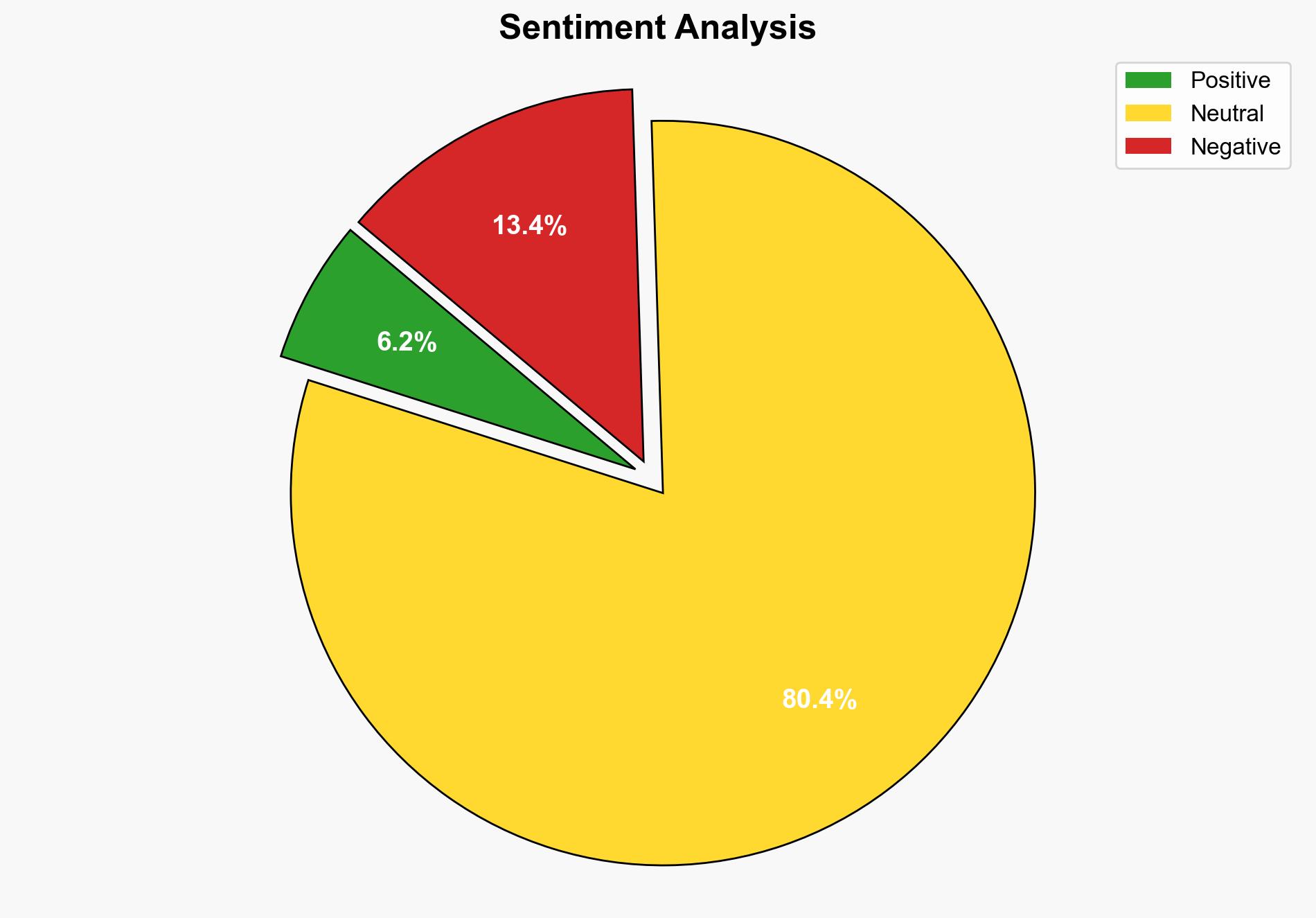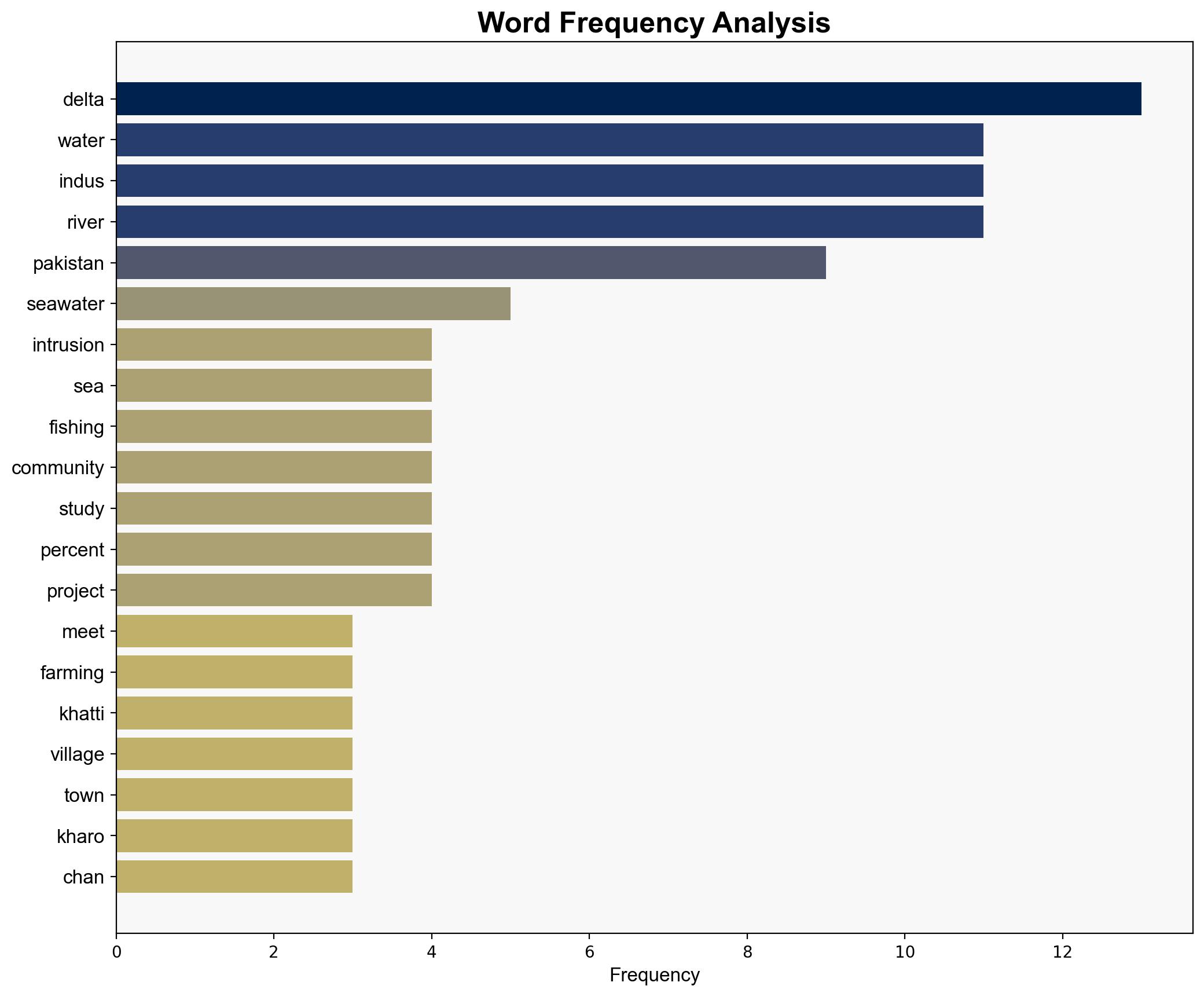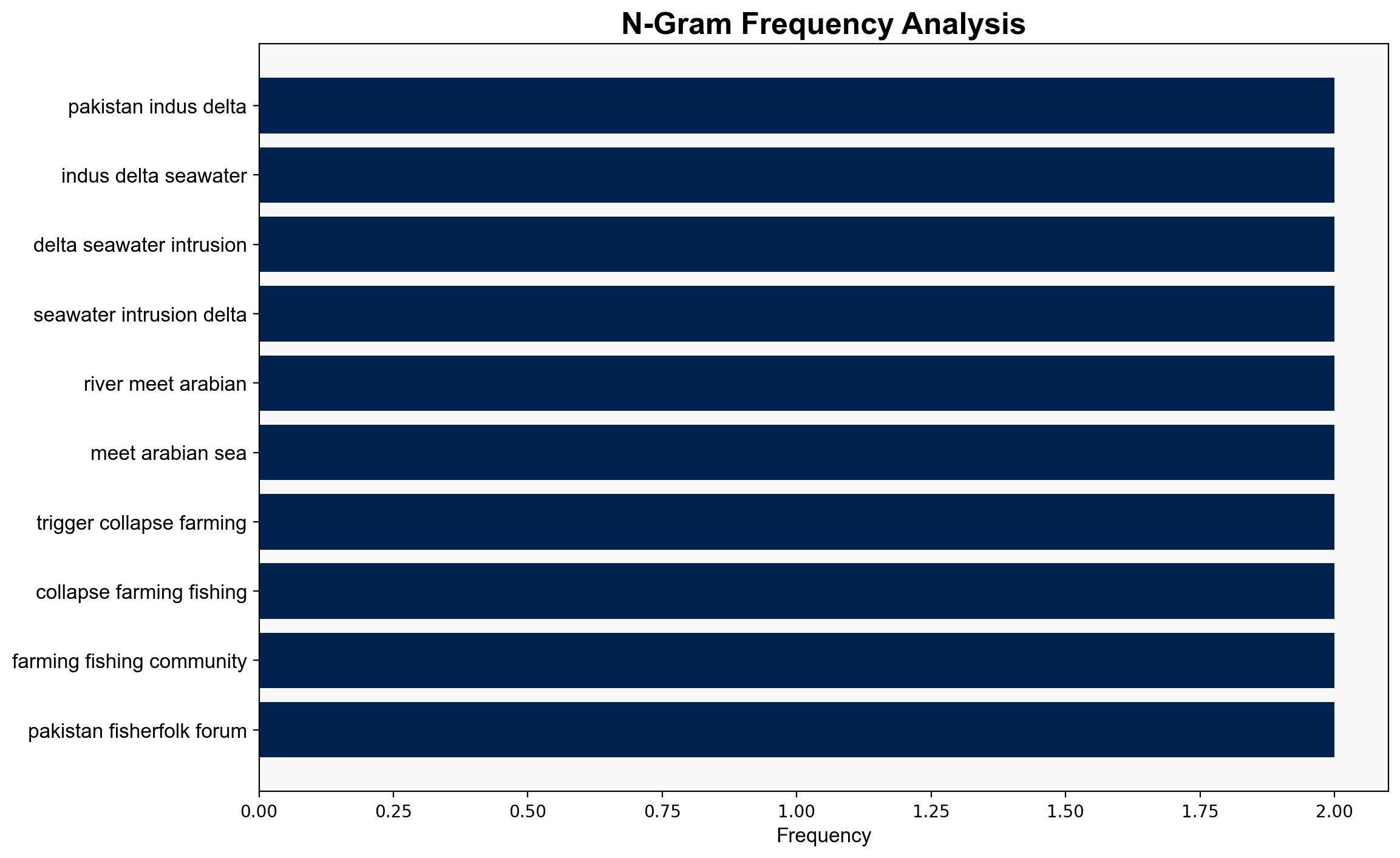Water has surrounded us The slow death of Pakistans Indus delta – Al Jazeera English
Published on: 2025-08-05
Intelligence Report: Water has surrounded us The slow death of Pakistan’s Indus delta – Al Jazeera English
1. BLUF (Bottom Line Up Front)
The strategic judgment indicates a high confidence level that the degradation of the Indus Delta is primarily driven by human-induced factors, including upstream water management and climate change. The most supported hypothesis is that these factors, combined with inadequate governmental response, are accelerating the environmental and socio-economic decline of the region. Recommended action includes international diplomatic engagement to address transboundary water management and investment in local adaptation strategies.
2. Competing Hypotheses
1. **Hypothesis A**: The primary cause of the Indus Delta’s degradation is upstream water management, including dam construction and irrigation practices, which have reduced the river’s flow and increased seawater intrusion.
2. **Hypothesis B**: Climate change, particularly glacial melt and rising sea levels, is the predominant factor driving the degradation of the Indus Delta, with human activities playing a secondary role.
Using ACH 2.0, Hypothesis A is better supported due to historical data on water diversion projects and their direct impact on river flow, as well as local testimonies about the decrease in freshwater availability. Hypothesis B, while significant, lacks the same level of direct causation evidence in the context of the Indus Delta.
3. Key Assumptions and Red Flags
– **Assumptions**: Both hypotheses assume that the data from local studies and testimonies accurately reflect the situation. They also assume that governmental and international responses have been insufficient.
– **Red Flags**: Potential bias in local reports due to political or economic interests. Inconsistent data on the exact contribution of climate change versus human activities.
– **Blind Spots**: Lack of comprehensive data on the impact of regional geopolitical tensions on water management policies.
4. Implications and Strategic Risks
The degradation of the Indus Delta poses significant risks, including:
– **Economic**: Loss of agricultural and fishing livelihoods, leading to increased poverty and migration.
– **Geopolitical**: Potential for increased tensions with neighboring India over water rights and treaty compliance.
– **Environmental**: Long-term loss of biodiversity and ecosystem services.
– **Social**: Displacement of communities and cultural erosion.
Cascading threats include increased urbanization pressures on cities like Karachi and potential for regional instability due to resource scarcity.
5. Recommendations and Outlook
- Engage in diplomatic efforts with India to ensure equitable water sharing and treaty compliance.
- Invest in local adaptation measures, such as mangrove restoration and sustainable water management practices.
- Scenario Projections:
- **Best Case**: Successful international cooperation leads to improved water management and environmental restoration.
- **Worst Case**: Continued degradation leads to severe socio-economic and environmental collapse, exacerbating regional tensions.
- **Most Likely**: Gradual decline with intermittent local and international efforts to mitigate impacts.
6. Key Individuals and Entities
– Habibullah Khatti
– Muhammad Ali Anjum
– Haji Karam Jat
– Jinnah Institute
– Pakistan Fisherfolk Forum
– WWF (World Wildlife Fund)
7. Thematic Tags
environmental degradation, water management, climate change, regional stability, socio-economic impact





